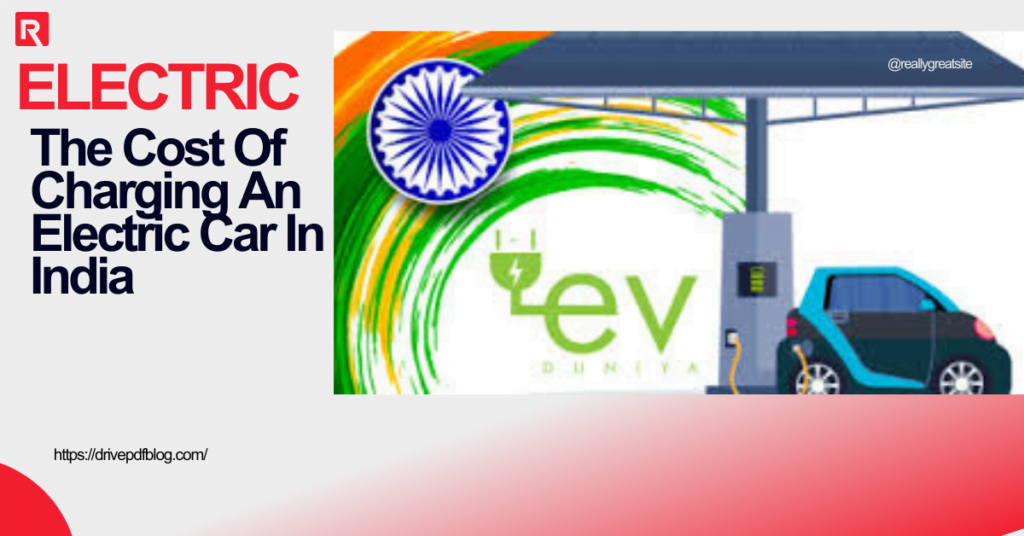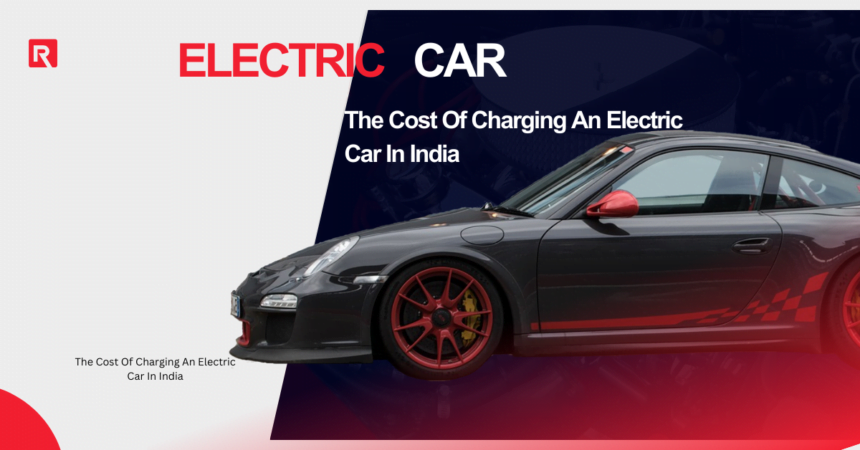
what is the cost of charging an electric car in india
Table of Contents
- How to Charge an Electric Car?
- Charging Cost of Electric Cars
- Types of Chargers for Electric Cars
- Conclusion
- FAQs
How to Charge an Electric Car?
Charging an electric car is a straightforward process, but it can vary depending on where and how you charge it. Here’s a step-by-step guide:
- Find a Charging Station: Whether at home, work, or a public charging station, make sure your electric vehicle (EV) is compatible with the charging outlet.
- Plug in the Charger: Insert the charging connector into your vehicle’s charging port. Your car should recognize the connection and begin charging automatically.
- Monitor Charging: Most modern EVs have apps or dashboard displays that let you monitor the charging process. You can see the battery level and estimated time to a full charge.
- End the Charge: Once your vehicle is fully charged, unplug the connector from the car and safely store the charging cable.
Charging Cost of Electric Cars
The cost of charging an electric car can vary based on several factors, including where you charge, the type of charger used, and local electricity rates.
- Home Charging: Charging your EV at home is often the most economical. The cost typically depends on your local electricity rates, which can vary by region. On average, charging an EV at home may cost around $0.10 to $0.20 per kWh, which translates to about $5 to $10 for a full charge.
- Public Charging: Public charging stations can vary in price. Some stations may offer free charging, especially those at shopping centers or workplaces, while others might charge by the hour or kWh. Fast chargers tend to be more expensive than standard chargers, costing around $0.20 to $0.50 per kWh.
- Subscription Services: Some companies offer subscription services for charging, providing unlimited or discounted access to charging stations for a monthly fee.
Types of Chargers for Electric Cars
There are three main types of chargers for electric cars, each with different charging speeds and suitable use cases:
- Level 1 Charger:
- Voltage: 120V (standard household outlet)
- Charging Speed: 2-5 miles of range per hour
- Use Case: Best for overnight home charging.
- Level 2 Charger:
- Voltage: 240V (similar to household appliances like dryers)
- Charging Speed: 10-30 miles of range per hour
- Use Case: Ideal for home use with dedicated EV charging equipment or public charging stations.
- DC Fast Charger:
- Voltage: 480V and above
- Charging Speed: 60-100 miles of range in 20 minutes
- Use Case: Best for quick top-ups during long trips at public stations.

Types of Chargers for Electric Cars
There are three main types of chargers used for electric vehicles (EVs):
1. Level 1 Charger
- Voltage: 120V (Standard Household Outlet)
- Charging Speed: 2-5 miles of range per hour
- Use Case: Level 1 chargers are the slowest but most accessible option, as they can be plugged into any standard household outlet. They are suitable for overnight home charging when the car isn’t needed for several hours.
2. Level 2 Charger
- Voltage: 240V (Similar to Larger Appliances like Dryers)
- Charging Speed: 10-30 miles of range per hour
- Use Case: These chargers require a dedicated installation at home or can be found at public charging stations. They are much faster than Level 1 chargers and are the most common type for home charging setups. They are ideal for daily use, offering a good balance between charging speed and convenience.
3. DC Fast Charger (Level 3)
- Voltage: 480V and above
- Charging Speed: 60-100 miles of range in 20 minutes
- Use Case: DC Fast Chargers are the quickest option, allowing for rapid charging in a short time. They are typically found at commercial locations and along highways, making them ideal for long trips where a quick top-up is needed. However, they are more expensive to use and can cause more wear on the battery if used frequently.
Each of these chargers has its own specific advantages and best-use scenarios, making it important to choose the right one based on your driving habits and charging needs.
Conclusion
Charging an electric car is becoming more convenient and cost-effective as technology advances. Whether you charge at home or on the go, understanding the different types of chargers and the costs involved can help you make the most of your EV experience.
RELETES ARTICLE
How Much Recharge Electric Car
Tata Curvv Suv The | Tata Curvv EV
FAQs
1. How long does it take to charge an electric car?
- The charging time can vary depending on the charger type. A Level 1 charger can take up to 24 hours for a full charge, while a DC fast charger can charge an EV up to 80% in about 20-30 minutes.
2. Can I charge my electric car in the rain?
- Yes, electric cars and chargers are designed to be weatherproof and safe to use in the rain.
3. How often should I charge my electric car?
- It depends on your driving habits. Many EV owners charge their cars overnight at home to ensure a full battery every morning.
4. What is the lifespan of an electric car battery?
- Most EV batteries are designed to last between 8 to 15 years, depending on the model and usage.
5. Are there enough public charging stations available?
- The number of public charging stations is growing rapidly, with most cities offering a variety of locations. However, availability can vary by region.





